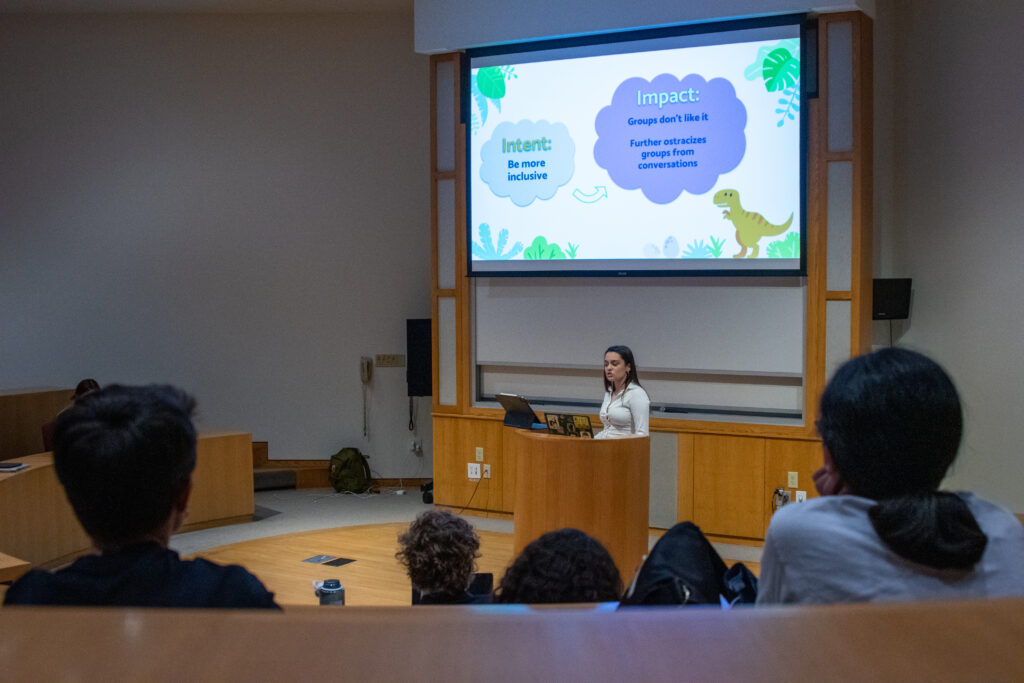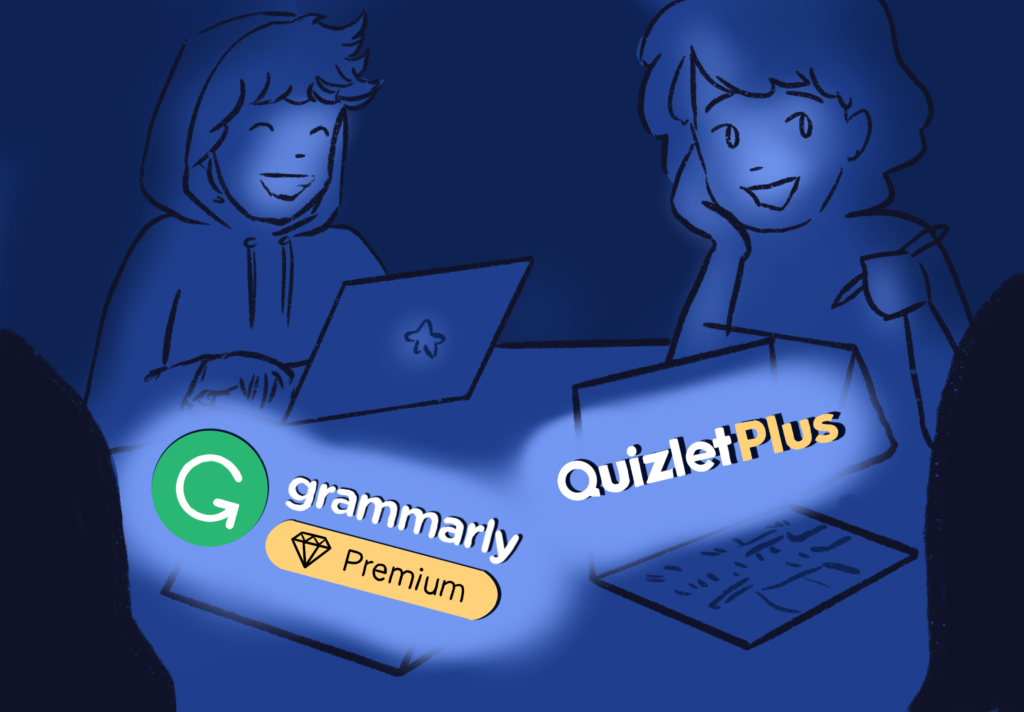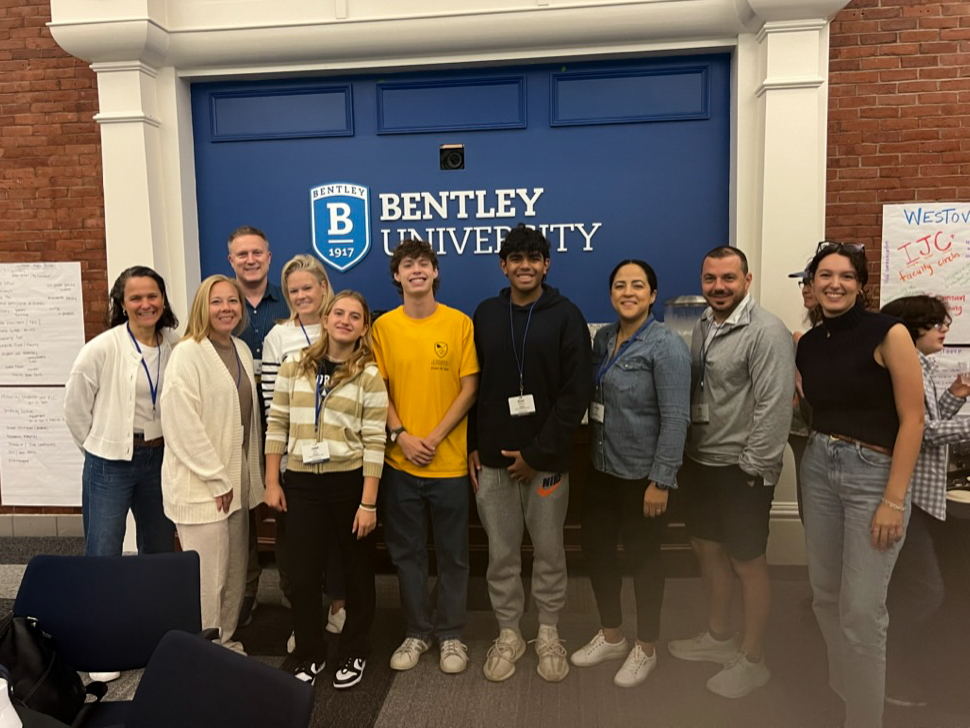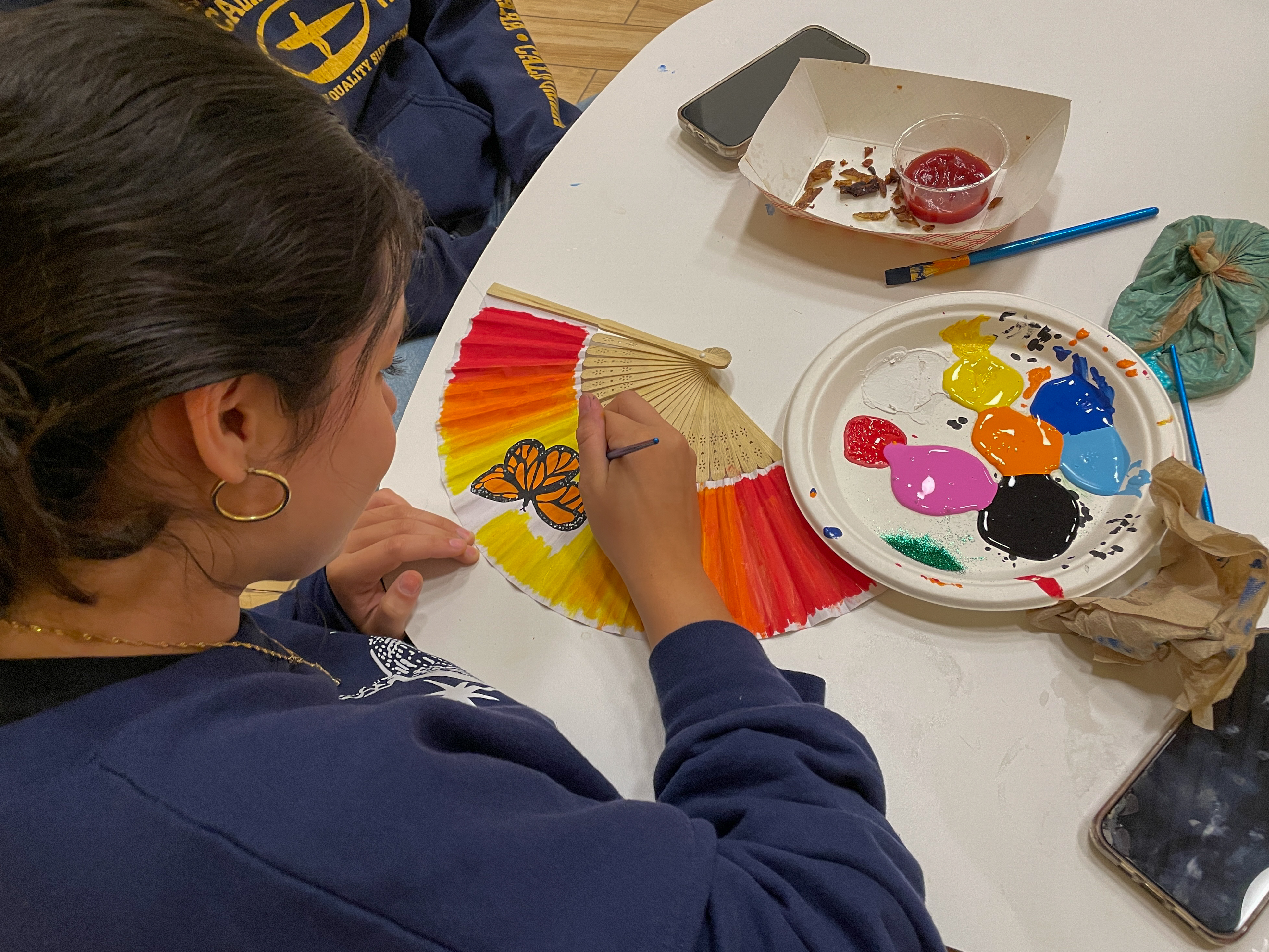
Ava Maha ’23 presents on free speech in the United States.
Each year, the senior students of the John F. Kennedy ’35 Program in Government and Public Service deliver a culminating TED-talk-style presentation on a topic of their choice to the Choate community. This year, there were a total of 18 presentations, ranging from topics such as Supreme Court packing to the importance of foreign aid.
Dylan Clack ’23 presented on polarization in American politics, a topic he became interested in after recognizing the lack of deeper study on the subject in America. In his presentation, Clack compared American politics to a pendulum swing, saying, “We are currently swinging towards individualism, and we will probably swing back to communalism at some point [in the future].” Metaphors like this made JFK presentations meaningful for a lay-person audience, as everyone could walk away having learned something even if they had no previous knowledge of the topic.
Michael Korvyakov ’23 talked about the future of the Supreme Court, focusing specifically on the topic of Supreme Court packing. Korvyakov found interest in his topic early on when he worked for Keep Nine, a coalition that was trying to pass an amendment to the constitution to prevent court packing, over the summer.
Heidi Small ’23 presented on the strategic power of foreign aid in an era of intense competition between China, Russia, and the United States. Small was inspired by the many “misconceptions and inflated views about how foreign aid is used as a means to form partnerships, bolster trade relationships, and prioritize American national security.” She also relied heavily on the information she gained from her summer internship in Congress to create her presentation.
Students began working on their presentations during the winter term.
Clack started off his research process by browsing encyclopedias, such as Wikipedia and Britannica, to gain a basic understanding of the topic. Delving deeper, he read academic articles and books in order to “compile [the information] into something you could pack into ten minutes and easily digest.”
However, the task of condensing the information proved to be challenging when researching a broader concept like polarization. “I felt frustrated because I had to make pretty meaningful cuts in the content to be able to fit it all in while still speaking properly and making it understandable,” said Clack.
When crafting his presentation, Korvyakov decided to keep it more “idea-based” as opposed to “data-based” and was heavily inspired by his experiences during his internship. The main challenge was “making a complex idea into something simple” and keeping the presentation engaging for “audiences that aren’t political experts but have some interest [in the topic].”
Once he got past the initial research and preparation, the rest was smooth sailing. “I actually really enjoyed presenting,” said Korvyakov. “I think the crowd really enjoyed it … and it was nice presenting to a crowd that was interested in this because it is a very niche topic.”
When asked what he would like the audience to take away from his presentation, Korvyakov immediately replied, “Hopefully, that court-packing is bad.” He hopes that the audience develops an “appreciation for how the three branches of our government work and how integral the Supreme Court is in creating a balance.”
For Small, the research and brainstorming process was extremely rewarding, especially being able to hear “the diversity of experiences [that] people had during their internship[s] and how it impacted their understanding of a political or philosophical issue.” Small hopes that through her presentation, the audience was able to better understand the “tremendous power foreign aid has to influence international diplomatic relationship, and how the continuation of investments in foreign nations is truly vital for America’s stability and longevity.”
JFK Program Director Mr. Ned Gallagher similarly emphasized the importance that “the speakers have interest and enthusiasm for what they’re presenting, because [then it] can be fascinating even if the people listening don’t have a lot of background in that particular thing.”
“I thought the presentations were really informative yet easy to understand, allowing any person who attended to walk away with a better understanding of American government and politics,” said audience member Cassatt Boatwright ’24. “Everyone was very passionate about the topics they were talking about [and] you could really tell that they had all taken their time and put in a lot of effort, and they all had a lot of their personality embedded in [their presentations].”
For Boatwright, walking away from the presentations, she was inspired her to do more research in her own time. “Korvyakov talked a lot about the Keep Nine organization that he worked for, and after the presentations ended, I went back to my room, and I was researching it and looking into how I can help out,” said Boatwright.
The JFK presentations provided an opportunity for students in the program to share their interests in government and politics, while also allowing a chance for their peers to learn from them.




